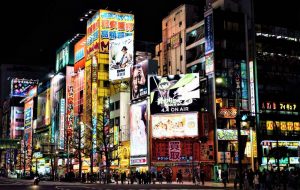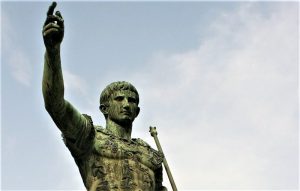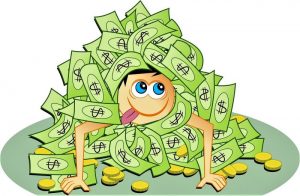Neoliberalism
We can define Neoliberalism, also known as new liberalism, as a set of great political and economic ideas based on capitalism that defends, above all, the non-participation of the State in the economy, leaving out any government interference, promoting private production that owns a single capital without ever having any kind of government subsidy. According to this doctrine, freedom of trade (free trade) should not be completely free, since this principle guarantees a country's economic growth and social development. It is seen by many as a negative action and is criticized for its policies such as state-owned privatization and the opening and poor regulation of markets.
What is neoliberalism?
Neoliberalism or new liberalism is a set of great political and economic ideas that have their foundations and are based on capitalism, defending principally the non-participation of the State in economic matters, leaving private companies to have a single capital without government subsidies.
Neoliberalism history
The word neoliberalism was first used by Alexander Rustow from Germany in 1938. From that moment on, a definition of neoliberalism began to be given as an important part and as a priority in the price system of free enterprise, free entrepreneurship and within a State that was considered strong and industrial. In the military regime of Augusto Pinochet in Chile, the term was used to refer to a broad set of political and economic reforms under his government, and a pejorative term was used. Over the last few decades, the term has been used to make criticisms against liberalization policies of power within the private sector who want to increase their economy. Neoliberalism has and defends concepts proper to the old liberalism of the 19th century.
Neoliberalism characteristics
- State participation is minimal in terms of how to improve and participate in shaping a country’s economy.
- The government has very little participation in the labor market.
- There is a privatization policy of state-owned enterprises.
- There is free movement of international capital and globalization emphasis is very important for them.
- It opens the way for multinational industries to invest, and important measures are taken against economic protection provided by the State.
- There is strong opposition to excessive taxes and levies, production is increased to benefit the investor and there is significant control over product prices. Supply and demand are very good for regulating prices.
- The economic base must be formed by private companies which are based on capitalism.
Objectives
Neoliberalism tries to provoke a fast process to reach wealth for which they are based on cheating and focusing wealth in entrepreneurs’ hands to achieve the goal of economic growth. They seek to quickly lower wage levels in order to achieve greater unemployment, and then create many unpaid people who are willing to work for very low wages. They try to destroy all kinds of workers’ guilds, so they are powerless against their employers. Privatizing everything in the country is one of their main objectives, because that is how they manage to dominate transnational corporations, public health and education. They foster ignorance by eliminating curricula, social, and political commitments, stimulating all the time the superficiality and human society anti-values.
Neoliberalism principles
- Individual competition is an important factor for economic performance and economic success is the fundamental ethical norm of all activity.
- The market is the only regulator and the only one in charge of economic process.
- There is a weakening role of the state in economy and in worker protection. The only thing the State should do is to help with free market functioning.
- Regulations that do not allow the free action of economic agents are eliminated, and monetary fluids are the only way the economy has to stimulate economic growth.
Neoliberalism representatives
Walter Eucken, the founder of Neoliberalism, was a Swiss economist born in London in 1891. Röpke and Ludwing Erhard, were the main exponents of the doctrinal current, Röpke Wilhelm, German economist, considered socialism as the end of capitalist problems, and postulated the need to defend the mechanism and advantages of the international division of labor. Von Hayek, a British economist of Austrian origin, stood out for his participation in the debate about the Theory of Economic Calculation.
Examples
Colombia and Peru are two countries that have been applying neoliberal economic policies that currently show a great increase in unemployment rates, economic decrease, little job generation, an inflation increase and loss of purchasing power, situations that have influenced the economic and social crisis in both countries. The handing over of companies to multinational companies for country’s mining projects, the lack of good policies to combat poverty and social disparity have caused the Peruvian people to be in crisis and discontent. On the other hand, in Colombia, all the indicators show that there will be an unemployment increase, as well as an increase in food and medicine prices and that interest rates will notably increase, worsening as the years go by if there is no change.
How to cite this article?
Briceño V., Gabriela. (2019). Neoliberalism. Recovered on 4 January, 2025, de Euston96: https://www.euston96.com/en/neoliberalism/










